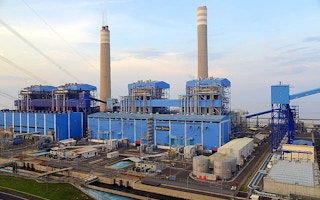The South Korean government unveiled plans on Monday to allow for potential exceptions to the nation’s recent pledge to cease its controversial public support for coal-fired power plants overseas, Eco-Business has learned.
To continue reading, subscribe to Eco‑Business.
There's something for everyone. We offer a range of subscription plans.
- Access our stories and receive our Insights Weekly newsletter with the free EB Member plan.
- Unlock unlimited access to our content and archive with EB Circle.
- Publish your content with EB Premium.
A press release published by the country’s Ministry of Economy and Finance (MOEF) after a government meeting on international economic affairs reveals that new guidelines on coal lending are in the making that could see South Korean public banks continue backing specific coal ventures.
Potential exemptions from the moratorium include retrofitting coal power plants already in operation, coal power projects that use carbon capture and storage (CCS) technology, and additional transactions for ventures that have already been approved.
The announcement comes only a month after President Moon Jae-in said at a climate summit hosted by United States President Joe Biden that the East Asian nation would end state funding for coal power beyond its borders and commit to a tougher 2030 emissions reduction target by 2022.
MOEF did not respond to requests for comment.
In recent years, pressure has piled on governments to move away from coal—which is the world’s dirtiest fossil fuel—as experts issue increasingly dire warnings of climate change.
The world’s third-biggest public financier of coal, South Korea has drawn global criticism for pouring public money into coal projects overseas that would not meet its own environmental standards at home.
Proposed coal-fired power ventures backed by South Korean public financial institutions and companies in Indonesia, Vietnam, and the Philippines have faced community opposition over the detrimental impacts of coal burning on air quality, water resources, and human health.
A 2019 report by environmental campaigners Greenpeace found that the Jawa 9 & 10 coal project in Indonesia, which is backed by South Korean government-owned utility Korea Electric Power Corporation and several state-owned banks, would cause 4,700 premature deaths over its lifetime.
Experts have also stressed that South Korea’s support for coal runs counter to green efforts made at home to achieve carbon neutrality by 2050, a target Moon unveiled last October.
Seoul-based climate policy group Solutions for our Climate (SFOC) called the announcement that the Moon administration might backtrack on last month’s pledge “a backstabbing moment for climate diplomacy”.
It warned that funding coal power retrofits would extend the lifetime of such power plants by up to several decades, slowing emissions cuts needed to combat climate change.
Joojin Kim, managing director at SFOC, said it was “disappointing” that the government had officially admitted that it was deliberating such exceptions, and that the country risked “destroying” any green credibility it had built.
South Korea’s announcement comes two weeks ahead of the P4G (Partnering for Green Growth and the Global Goals 2030) summit in Seoul, which will gather world leaders to discuss partnerships to achieve carbon neutrality and the United Nations Sustainable Development Goals.
In March, news emerged that Japan, the second-biggest financier of coal globally after China, was considering ending its support for the exportation of coal power plants.








